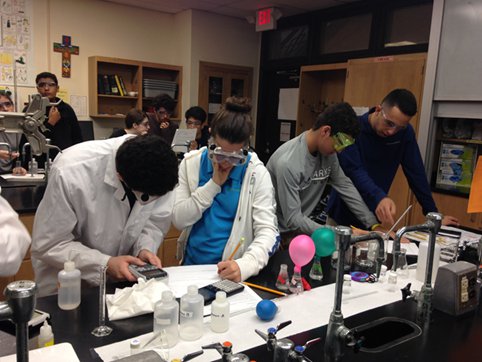Animal Behavior & The Science of Teaching Science. Welcome to Michael Robinson's Lab at Barry University
At some point in their lives, all organisms interact with other organisms whether from the same or different species. The outcomes of these interactions determine the success of individuals and species. I study these interactions by looking at communication and cooperation.
Animals communicate, whether purposely or unintentionally, when they transfer information to other animals. The recipients then decide what courses to take based on the content and reliability of that information. Very often, these interactions will facilitate or hinder cooperation between the animals.
My research focuses on understanding the evolutionary and ecological influences on communication and the social interactions that may result, principally in marine fishes.
In this video from Jamaica a male bicolor damselfish (Stegastes partitus) is trying to convince a female to mate with him (i.e., he's courting her!). He is communicating his quality as a father through the behavior called dipping. The female is in the plastic bottle, and the male's nest is in the PVC tube.






















